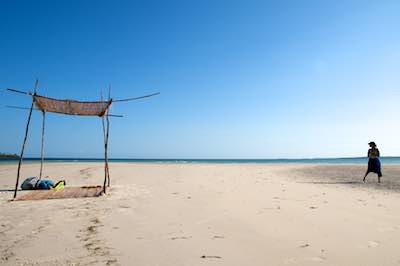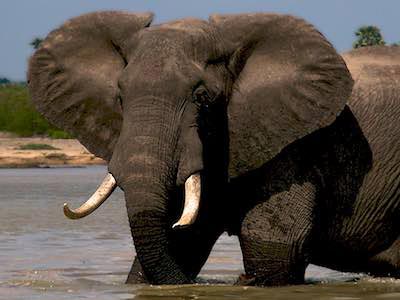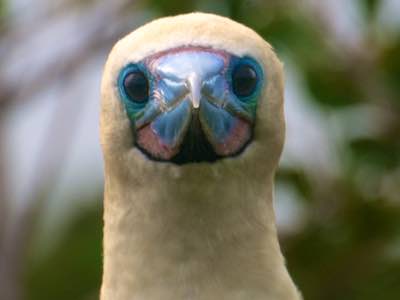We believe that a strong conservation focus today is essential if our world's Wild Spaces are to survive into the future. That is why we support conservation in the field, to safeguard these precious areas through both wildlife-focused conservation, and community-based education & sustainable development.
Conservation & Community
- Conservation Ethos
- Conservation & Community Projects
- The Future
We are committed to help conserve our world's unique wildlife & natural heritage by:
.jpg)
- Supporting conservation of wildlife and its habitat.
- Promoting sustainable development of local communities.
- Directly supporting community-based conservation projects.
- Helping to establish wildlife corridors, sanctuaries & education centres.
- Working with local communities to conserve wildlife & habitat.
.jpg)
By choosing to travel with us, you will see and learn about our world's unique wildlife. On our specially tailored Conservation Safaris, you will have the opportunity to visit conservation programmes and learn how you can continue to support these and other programmes when you return home.
Proceeds from your safaris are used to support conservation programmes & help with local community education. We support local communities that we visit through the principles of responsible tourism & actively encourage their participation in and ownership of conservation of wildlife & its habitat.
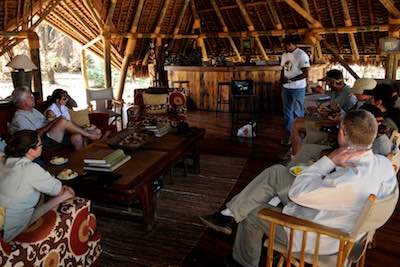 We all have an impact on the environment; our aim is to tread as lightly as possible. We support the planting of indigenous flora to encourage natural vegetation & offset the carbon emissions from your travel.
We all have an impact on the environment; our aim is to tread as lightly as possible. We support the planting of indigenous flora to encourage natural vegetation & offset the carbon emissions from your travel.
We can all make a difference.
One Planet, One Home, Our Shared Responsibility.
We support a number of carefully selected conservation projects in the field that focus on both wildlife and communities, because we believe that in the long term, conservation cannot succeed without the support of the communities living with the wildlife. Below is a small selection of projects we support, which you can also support.
Ruaha Carnivore Project, Tanzania
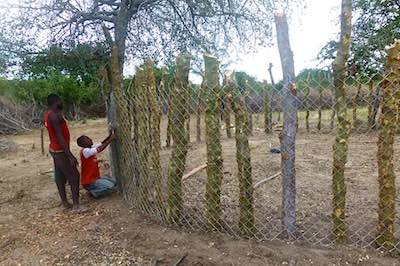
The Ruaha Carnivore Project aims to help develop effective conservation strategies for large carnivores in Tanzania's remote Ruaha landscape. It is one of the most important areas of the world for large carnivores, supporting around 10% of all the lions left in Africa, as well as globally important populations of African Wild Dogs, cheetahs, leopards & spotted hyenas. The project works together with local communities to effectively reduce human-carnivore conflict by finding effective predator deterrents, as well as showing the direct benefits of having wildlife on their land.
Conservation Safaris provides support for this project, most recently through donations of materials for building several predator-proof livestock bomas (enclosures).
EWASO Lions, Kenya
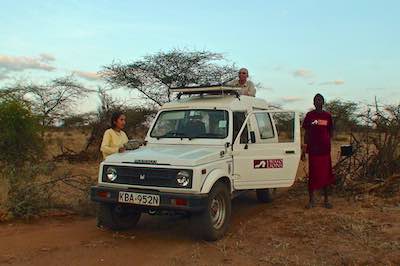
The EWASO Lions project is working in the fragile ecosystems of Shaba, Samburu, Buffalo Springs National Reserves and their surrounding areas in Kenya's north. The project is conducting research to establish the baseline population information for lions in the area with the aim of determining what survival issues they face, including human-induced impacts and most importantly, possible solutions. The project also focuses heavily on local community involvement & education for children on the benefits of wildlife.
Conservation Safaris provides support for this project through various donations, including 2 laptop computers to enable efficient data collation, entry & analysis, as well as supplying stationary & other equipment for the local schools. Most recently, we donated radios for their wildlife scouts to use when tracking lions and to call in locations.
Painted Dog Conservation, Zambia, Namibia & Zimbabwe

Painted Dog Conservation is a charity that provides support to a number of projects focused on African Wild Dog conservation: the Zambian Carnivore Programme, the Wild Dog Project in Namibia, and the Painted Dog Conservation Project in Zimbabwe. These projects are based in the field in each of these countries, conducting research on the most effective conservation strategies relevant to each of the regions in which they work. Community involvement and education are a significant aspect of the projects, thus setting up direct benefits from wildlife. In addition, anti-poaching patrols are conducted to remove and collect snares in the bush.
Okapi Conservation Project, DRC

The Okapi Conservation Project is located within the Ituri Forest, which contains some of the most important closed canopy rainforest and species diversity in the world. In recognition of the importance of this unique ecosystem, which harbours high levels of endemism, including a large population of okapi, the Okapi Wildlife Reserve was created in 1992, encompassing 13,700 square kilometres. The objective of the project is to develop an economic and educational base on which a functioning Okapi Reserve can operate. This is supported by the OCP programme areas of agro-forestry, conservation education, alternate livelihoods, and community assistance, coupled with direct support for the Institute in Congo for the Conservation of Nature (ICCN) to protect the wildlife and forest of the Okapi Wildlife Reserve. Most recently, we made donations to enable their rangers to continue their tough work of anti-poaching and regular patrols in the Reserve.
Satpuda Foundation & Satpuda Landscape Tiger Programme, India
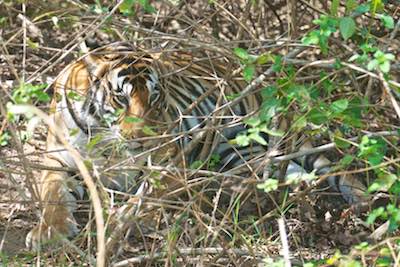
The Satpuda forests of Madhya Pradesh and Maharastra offer the best hope for India's tigers. With a network of Tiger Reserves connected by forest corridors, this is the largest block of tiger habitat in India. A handful of small organisations and committed conservationists work hand in hand with government officers and local communities to deliver long-term solutions for the protection of Satpuda's biodiversity, both directly protecting wildlife and addressing some of the most urgent needs of the people that live close to tigers. The Satpuda Foundation aims to protect wildlife and forests across the Satpuda landscape and to promote ecologically sustainable development among rural and urban communities in the region.
Satpuda Foundation, India:
Satpuda Landscape Tiger Programme, Wild CRU
You may have gathered by now that we are passionate about our world's wilderness!
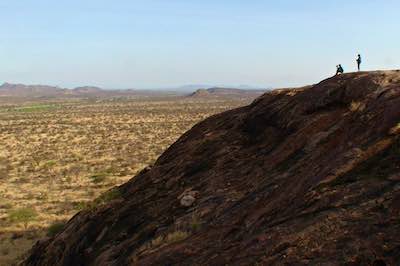 We are also passionate about conserving that wilderness. In addition to supporting conservation programmes in the field, we are working on setting up nature conservancies - Land for Wildlife.
We are also passionate about conserving that wilderness. In addition to supporting conservation programmes in the field, we are working on setting up nature conservancies - Land for Wildlife.
These conservancies will be set up by acquiring land that is of high conservation value - this could mean that the land has endangered or threatened species on it, the land forms part of a migratory corridor for wildlife, and/or extends existing protecting lands, thereby extending the range area for wildlife.
Our initial focus is on East Africa (the rangelands of northern Kenya), Borneo (its fast diminishing rainforest, home of Orang-utans & pygmy elephants),
and Australia (mid/upper east coast forests,extending national parks).
If you would like to find out more, would like to help us, or be involved with the setting up of these conservancies, please contact us - we would love to hear from you!
One Planet, One Home, Our Shared Responsibility.

